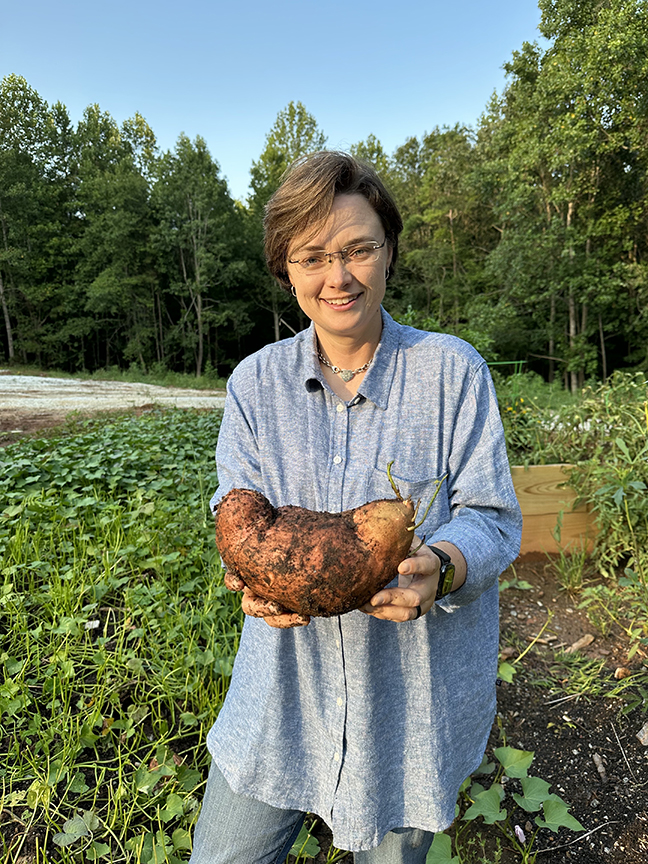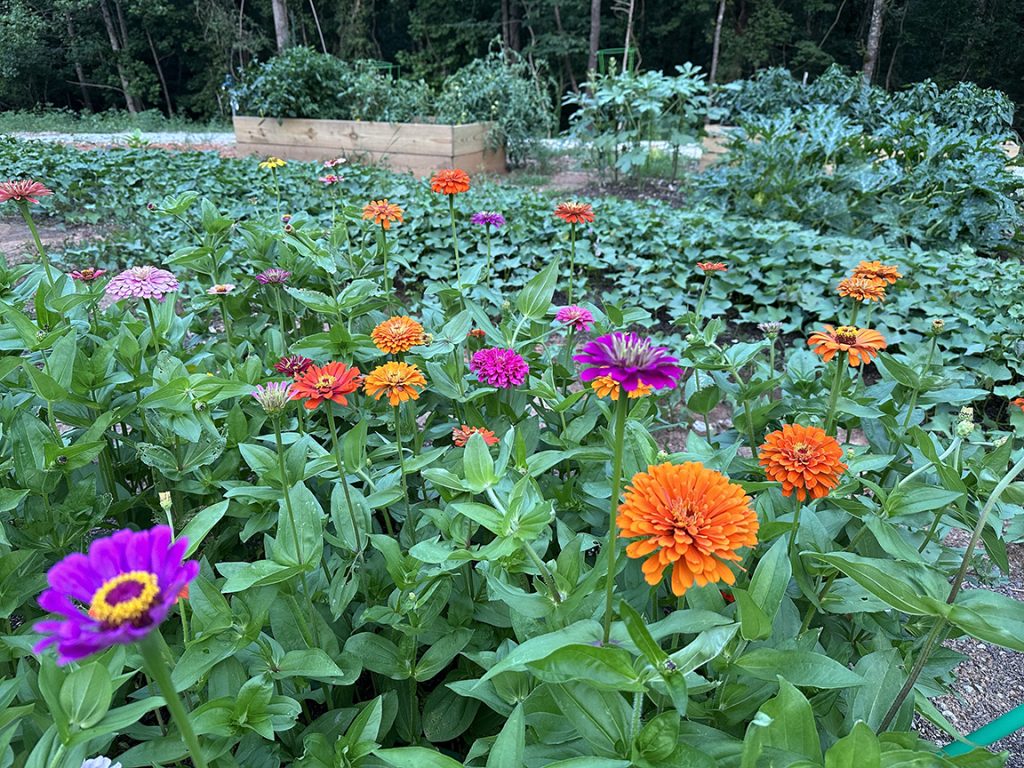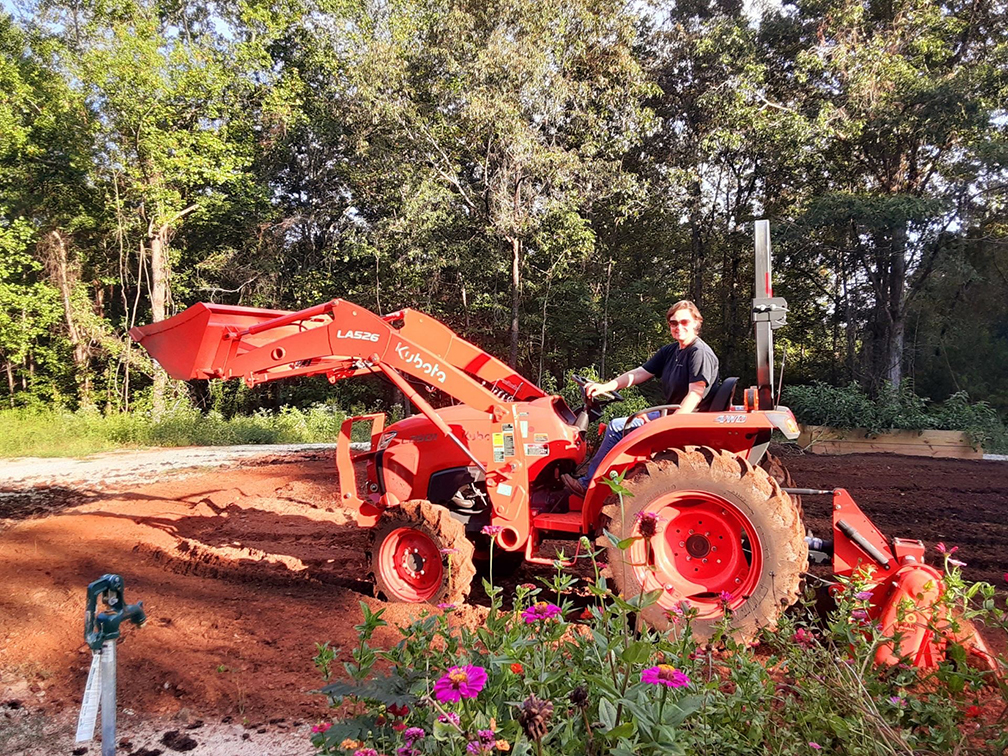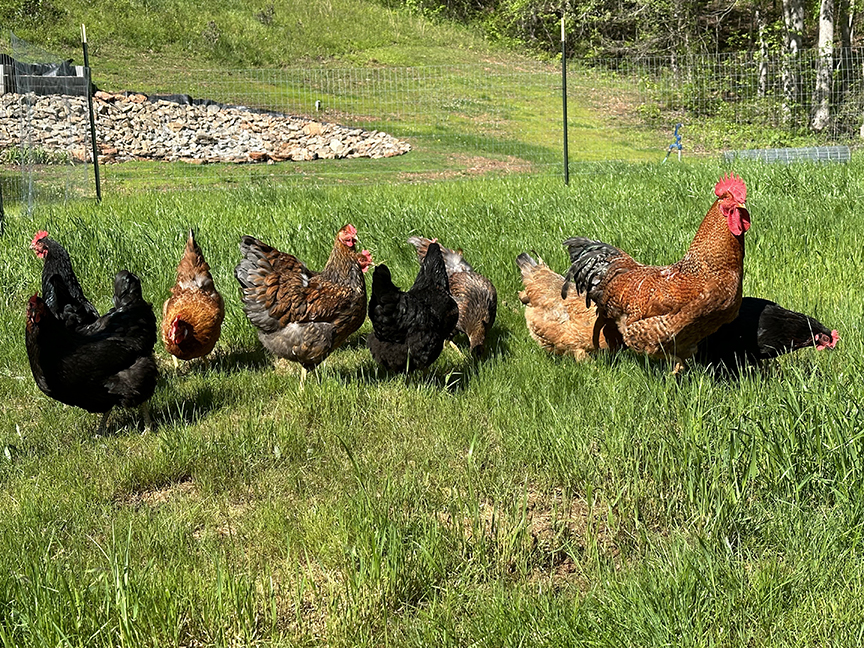Rev. Cameron Trimble, CEO of Convergence
For much of my life, I have lived in cities or suburbs. I remember spending hours of my life each weekend pulling plants out of the ground that we called “weeds.” I would then spend more hours of my life and hundreds of dollars to put different plants in their place, all in pursuit of a thing called a “manicured lawn.” We all did this on our weekends. It was the unquestioned task of the responsible homeowner.
A few years ago my family and I moved to a small, rural town called Wedowee, Alabama. We purchased 10 acres of land once cared for by the Muscogee Nation tribal people. Suddenly, in addition to being a congregational consultant, I became a farmer. Let me tell you, I’ve now watched a lot of YouTube videos on how to drive a tractor. Nothing in my previous life experience prepared me for this new adventure.

Living in relationship with 10 acres of land, I learned there is no such thing as a “weed“ in this context. As part of the regenerative farming movement, we work with this land to regenerate nutrient-dense, microbial-rich soil to grow fruits, vegetables, and flowers that feed and beautify our community. Our little 10 acres is called the Common Good Farm, a community farm open to anyone in need of food. My role as its curator has been to learn as much as I can about supporting the health of this land so that it might support the health of those of us it feeds.
When you’re farming 10 acres of land, you don’t pull weeds and replace them with store-bought flowers. Everything has a purpose. You only pull plants from the ground when they are creating an imbalance in the ecosystem that might harm the whole. You only till the ground when establishing a new garden (if at all). Once established, you avoid disturbing the microbial world within the dirt at all costs. You build your planting rows on angles to catch the flow of rain as it hits the ground. When done thoughtfully and well, a regenerative farm is a vibrant, wild, living space that produces food 300 times more nutritious than we buy in grocery stores today.
It’s nothing like a manicured lawn.

Living as a church consultant and regenerative farmer is an interesting life. Because the wisdom of life is far more interconnected than we acknowledge, I find myself seeing similarities in both spaces. Vibrant, wild, living churches are full of the healthy nutrients of trust, curiosity, and community. They feel like a wildflower garden with colorful people, lots of energy and a freedom to bring the fullness of yourself into the space. There are also congregations that feel like the manicured lawn. You have a sense of suspicion of the outsiders, the expectation of behavior that feels performative, and an oppressive aura of control that reminds one of a funeral service more than a birthing room.
I am increasingly encouraged that more and more congregations are waking up to nature being our great teacher. The beloved philosopher farmer Wendell Berry said,
“We have lived our lives by the assumption that what was good for us would be good for the world. We have been wrong. We must change our lives so that it will be possible to live by the contrary assumption, that what is good for the world will be good for us. And that requires that we make the effort to know the world and learn what is good for it.”
As we celebrated Earth Day this week, I took heart that congregations across the world have named climate justice as their top priority. They are maintaining community gardens, teaching their children about how food grows, simplifying their lives with less “stuff,” and limiting their energy needs. I need not recite the very dire statistics of the current ecological devastation we are reaping upon the Earth. We’ve come so far that you can now see that on the daily news. But let us celebrate that more and more of us are waking up to the life-giving wisdom of our natural world, loving Creation as the embodiment of God’s love for us.

Wendell Berry goes on to say:
“It may be that when we no longer know what to do,
we have come to our real work
and when we no longer know which way to go,
we have begun our real journey.
The mind that is not baffled is not employed.
The impeded stream is the one that sings.”
So much of the church is changing. As congregational leaders, we were trained to maintain perfectly manicured congregations. Proper buildings, services and songs. But the wildflowers of the Holy Spirit are growing in the vegetable patches of institutional religion. It’s all becoming messy, yet somehow vibrant and alive. Finally, we can breathe! We are beginning to see the regenerative awakening of people reconnected to a sense of awe, wonder, and resonance by reconnecting with the wisdom of the earth. We are not Beloved children ON the earth; we are OF the earth. We are one.
We can’t quite say yet how the future of the institutional church will turn out. But I have a feeling it will be covered in beautiful flowers that some of us now call weeds.


Comments
As a regenerative farmer and minister, I love everything about this. Thank you.